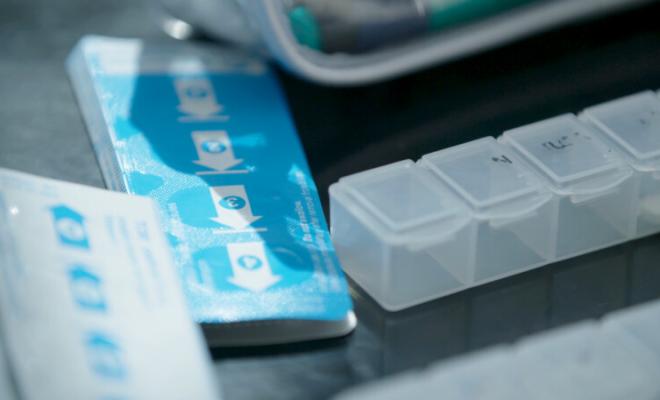Small-molecule CFTR modulators that directly target the mutant protein are powerful therapies that benefit the majority of people with cystic fibrosis. However, there is still a significant unmet need for people with CFTR mutations that:
- Do not respond to modulators
- Do not generate sufficient quantities of CFTR protein for correction
- Block protein synthesis (i.e., premature stop codon mutations, splice mutations, insertion/deletion mutations, etc.)
In addition, some people cannot tolerate currently approved modulators or cannot take them for other reasons (e.g., drug-drug interactions). To ensure all people with CF have access to effective CFTR-directed therapies, the Cystic Fibrosis Foundation announced the Path to a Cure (PTAC) initiative in 2019.
Award Types
There are four program options:
| Award Type | Funding Level |
|---|---|
| PTAC Research Grant | Up to $150,000 per year plus 12% indirect costs for up to three years |
| PTAC Pilot and Feasibility Award | Up to $50,000 per year plus 12% indirect costs for up to two years |
| PTAC Postdoctoral Research Fellowship Award |
Up to $75,000 in the first year, and up to $76,000 in the second year. Indirect costs are not allowable. |
| PTAC Postdoc-to-Faculty Transition Award | Up to $75,000 in the first year, and up to $76,000 in the second year. Indirect costs are not allowable. Refer to Policies and Guidelines for funding support table. |
Focus of Proposals
Projects supported through the PTAC initiative should focus on foundational concepts, strategies, novel tools and methods, and/or technologies that have the potential to inform or ultimately translate into novel therapies to restore CFTR protein function or fix/replace the defective CFTR gene:
- Identifying, characterizing, and validating potential targets to promote nonsense mutation suppression, which includes understanding the pathways and mechanisms that regulate translation termination and nonsense mediated decay (NMD)
- Developing novel means of repairing and/or replacing the mutant CFTR gene
- Characterizing cellular targets for CFTR correction, including airway progenitor cells and other affected epithelial tissues (biliary tract, GI tract, pancreas)
- Developing and optimizing the chemistry and formulation of nucleic acid delivery vehicles, both viral and non-viral, that can target disease relevant cells and tissues
- Conducting comprehensive evaluation of the role of various pulmonary cell types in CF disease pathogenesis (i.e., ciliated cells, club cells, ionocytes, etc.) and the region of the lung that is necessary to target with a genetic-based therapy to prevent, halt, or reverse disease
- Devising methods to overcome barriers that limit delivery of genetic therapies to disease relevant cells and tissues
- Creating cell, tissue, and animal models to discover and develop nucleic acid delivery vehicles and/or methods of restoring or repairing CFTR
- Developing tools and assays to pre-clinically evaluate the efficacy and safety of restoring functional CFTR through gene repair, gene replacement, small molecules, or any other novel method
General Guidelines and Eligibility
Please see individual policies and guidelines for additional guidelines and eligibility criteria. Eligibility requirements vary by award type.
Policies and Guidelines
Please review the appropriate Policies and Guidelines for complete submission information:
- Path to a Cure (PTAC) - Research Grant Policies and Guidelines
- Path to a Cure (PTAC) - Pilot and Feasibility Award Policies and Guidelines
- Path to a Cure (PTAC) - Postdoctoral Research Fellowship Award Policies and Guidelines
- Path to a Cure (PTAC) - Postdoc-to-Faculty Transition Award Policies and Guidelines
Deadline
Deadline for applications (except PTAC Postdoc-to-Faculty Transition Award*): May 15, 2025
Applications must be submitted online at awards.cff.org by 5 p.m. ET.
*The PTAC Postdoc-to-Faculty Transition Award is not being offered in the 2025 spring cycle.
For More Information
Those who are interested in any funding programs offered by the CF Foundation can get further information, or discuss the potential relevance of their studies or research, by contacting the Grants and Contracts Management and Administration (GCMA) office at grants@cff.org.
Please Direct Inquiries to:
GCMA Office
Cystic Fibrosis Foundation
4550 Montgomery Ave.
Suite 1100 N
Bethesda, MD 20814
800-FIGHT-CF
301-841-2614
